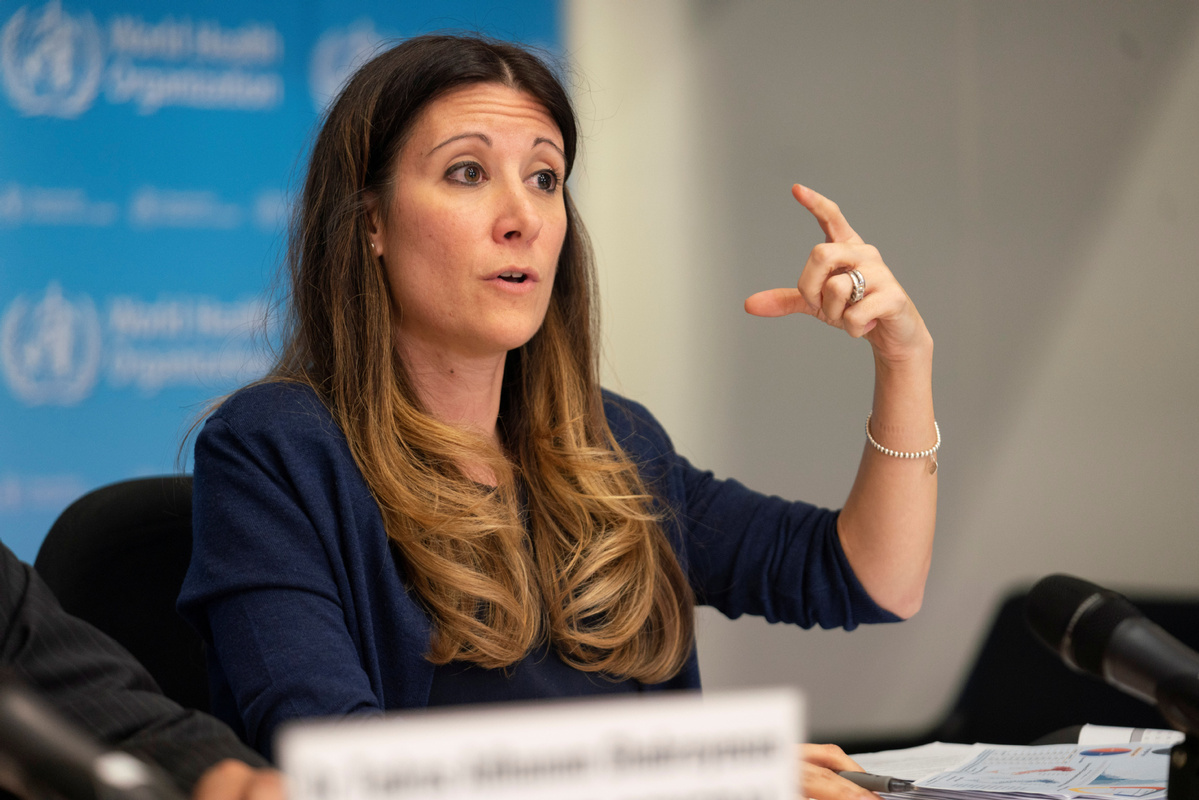COVID-19 has not changed in terms of transmissibility or severity: WHO officials


GENEVA - Officials of the World Health Organization (WHO) said on Monday that COVID-19 has not changed either in its transmissibility or severity, and that more efforts are needed to suppress transmission and save lives.
Responding to a question on some doctors' suggestion that coronavirus is somehow losing potency, Dr Maria Van Kerkhove, technical lead for the WHO Health Emergencies Programme, said the suggestion is not true.
Kerkhove explained here at a press conference that there are two major features used to measure the virus since the beginning -- transmissibility and severity. The former means "how many secondary cases can one case infect" or the "reproduction number," which is naturally above two. The latter means how severe this virus in causing a variety of diseases, and in the case of COVID-19, "20 percent of individuals will have a severe disease."
"So in terms of the transmissibility, that has not changed. In terms of the severity, that has not changed," Kerkhove emphasized.
Dr Michael Ryan, executive director of the WHO Health Emergencies Programme, agreed with Kerkhove and said: "This is still a killer virus and there are still thousands of people every day dying from this virus, so we need to be exceptionally careful, not to create a sense that all of a sudden the virus, by its own volition, has now decided to be less pathogenic. That is not the case at all."
"It may be that we are as a community and as a globe successfully reducing the number intensity and frequency of exposure to that virus, which on the face of it, the virus then looks weaker, but it may be weaker because we're doing better, not because the virus itself is weakening," he added.
However, Kerkhove emphasized that "there are things that we can do to suppress transmission and to save lives."
"There are measures that we can put in place to reduce transmission, to suppress transmission, and this includes finding, testing, isolating, caring for all cases, tracing and quarantine all contacts, ensuring that we have mobilized and engaged public, ensuring that we have an all-of-society, all-of-government approach," she said.
"And we know that early treatment, early identification, early oxygen support when needed, can save lives and so these are the things that I think can reduce the potency, that can reduce the power of this virus. But if we let the virus go, it will infect people and it will cause severe illness to about 20 percent of people," she added.
According to Ryan, the public should "not be negative about any hopeful message, but at the same time, we need to be realistic and be driven by facts," adding "We can't at this point take that chance and we have to continue to do the things we're doing."
































